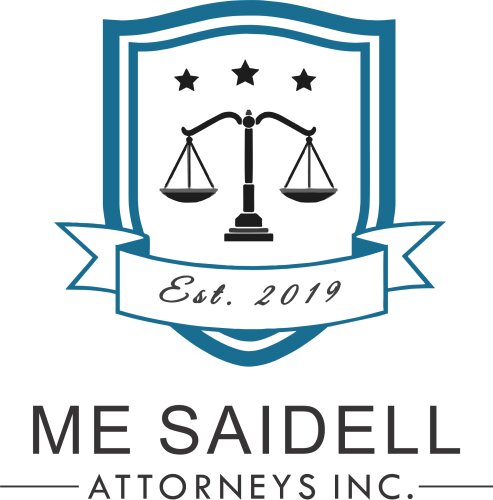Best Funds & Asset Management Lawyers in Johannesburg
Share your needs with us, get contacted by law firms.
Free. Takes 2 min.
List of the best lawyers in Johannesburg, South Africa
About Funds & Asset Management Law in Johannesburg, South Africa
Funds and asset management law in Johannesburg is a specialized field that governs the formation, operation, and regulation of investment funds and asset management firms. Johannesburg, as South Africa’s financial hub, is home to numerous local and international fund managers, hedge funds, unit trusts, private equity funds, and asset management companies that operate within a framework set by both domestic and global regulations. The goal of these regulations is to protect investors, maintain the integrity of the financial markets, and ensure the sound management of collective investment schemes, pension funds, and other managed assets.
Why You May Need a Lawyer
Funds and asset management operate within a complex legal environment. There are several scenarios where engaging a lawyer with expertise in this area is critical:
- Establishing a new fund or asset management company
- Ensuring compliance with regulatory obligations set by the Financial Sector Conduct Authority (FSCA) and the South African Reserve Bank
- Structuring investments or drafting fund documentation such as prospectuses, trust deeds, and subscription agreements
- Navigating licensing requirements and applications
- Remedying or defending compliance breaches and dealing with enforcement actions
- Advising on cross-border investments and foreign fund operations in South Africa
- Assisting with disputes among investors, managers, or regulators
- Managing mergers, acquisitions, or restructurings involving funds or asset management businesses
Because regulatory oversight is strong and the stakes are high, proper legal guidance is vital for institutional and individual investors, finance professionals, and asset managers.
Local Laws Overview
Funds and asset management activities in Johannesburg are primarily governed by several key statutes and regulatory authorities:
- The Collective Investment Schemes Control Act (CISCA) regulates the establishment and management of collective investment schemes such as unit trusts.
- The Financial Advisory and Intermediary Services Act (FAIS) sets the standards for licensing and conduct of financial services providers, including asset and fund managers.
- The Pension Funds Act applies to the management of pension funds and retirement annuities.
- The Financial Sector Regulation Act (FSRA) provides for overall regulatory oversight, including the Twin Peaks model involving the FSCA and the Prudential Authority.
- The South African Reserve Bank oversees exchange control regulations relevant to cross-border fund flows and investments.
- The Companies Act may apply to the structuring and governance of asset management entities.
Regulatory compliance is strictly enforced, and failure to meet standards can lead to penalties, suspension, or loss of licenses. Ongoing reforms may also introduce new obligations for fund managers and investors, heightening the importance of up-to-date legal advice.
Frequently Asked Questions
What is considered an investment fund in Johannesburg, South Africa?
An investment fund typically refers to a collective investment scheme where investor contributions are pooled to invest in a diversified portfolio of securities. This can include unit trusts, hedge funds, private equity funds, and similar vehicles regulated under the Collective Investment Schemes Control Act (CISCA).
Who regulates funds and asset managers in Johannesburg?
The primary regulator is the Financial Sector Conduct Authority (FSCA), which oversees the licensing and conduct of financial services providers. The South African Reserve Bank also plays a role in regulating certain activities related to foreign exchange and cross-border investments.
Do I need a license to manage funds or give investment advice?
Yes, under the Financial Advisory and Intermediary Services Act (FAIS), anyone providing financial advice or intermediary services in respect of financial products must be licensed and meet the requirements set by the FSCA.
Can foreigners invest in South African funds?
Yes, foreigners can invest in South African funds, subject to exchange control regulations and compliance with anti-money laundering laws. Certain investments may require approvals or notifications to regulatory authorities.
What are the key compliance obligations for asset managers?
Asset managers must comply with fit and proper requirements, maintain minimum capital adequacy, protect client assets, ensure disclosure and reporting, conduct due diligence, and manage conflicts of interest, among other obligations imposed by CISCA and FAIS.
What legal structures are commonly used for investment funds in Johannesburg?
Popular structures include unit trusts, limited partnerships, companies, and trusts. The choice depends on the investor base, fund strategy, and tax considerations. Each structure has specific regulatory and operational requirements.
How are investor rights protected in South African funds?
Investor rights are protected through statutory regulations, the requirement for transparent disclosure, independent custodianship of assets, periodic reporting, and the availability of complaint resolution mechanisms through ombuds or regulators.
Can funds invest in assets outside South Africa?
Yes, subject to foreign investment limits and exchange control rules administered by the South African Reserve Bank. Funds wishing to invest offshore must comply with these controls and obtain any necessary approvals.
What are the tax implications for fund investors?
Taxation depends on the investor type (individual or institutional), the nature of the fund, and the character of income (interest, dividends, capital gains). Tax advice is essential as funds often have specific reporting and withholding obligations.
How are disputes between investors and fund managers resolved?
Disputes may be resolved through internal complaints processes, mediation, the Financial Services Tribunal, or litigation. Many fund agreements include arbitration clauses for resolving conflicts outside of court.
Additional Resources
Here are key organizations and resources for funds and asset management inquiries in Johannesburg:
- Financial Sector Conduct Authority (FSCA): Regulates financial services providers and collective investment schemes.
- South African Reserve Bank (SARB): Oversees exchange controls and cross-border investments.
- National Treasury: Provides policy guidance on financial sector regulation.
- South African Institute of Financial Markets (SAIFM): Offers professional development and market information.
- Financial Planning Institute of Southern Africa (FPI): For locating certified financial planners and advisors.
- Johannesburg Stock Exchange (JSE): For information on listed funds and trading rules.
- Pension Funds Adjudicator: Handles complaints about pension fund management and benefits.
Next Steps
If you need legal assistance in funds and asset management in Johannesburg:
- Identify your specific area of concern, such as fund formation, compliance, licensing, or dispute resolution.
- Gather and organize all relevant documentation, including fund prospectuses, contracts, investment statements, and communication records.
- Seek recommendations or conduct research to find law firms or attorneys specializing in funds and asset management law.
- Book a consultation to discuss your needs, objectives, and any regulatory or compliance questions you may have.
- Confirm the lawyer’s experience with similar cases and their familiarity with Johannesburg and South African financial regulations.
- Follow through with your legal advisor’s guidance, ensuring you remain transparent and responsive throughout your engagement.
Timely and informed legal support is crucial in this highly regulated and dynamic field to protect your interests, meet compliance requirements, and achieve your business or investment goals.
Lawzana helps you find the best lawyers and law firms in Johannesburg through a curated and pre-screened list of qualified legal professionals. Our platform offers rankings and detailed profiles of attorneys and law firms, allowing you to compare based on practice areas, including Funds & Asset Management, experience, and client feedback.
Each profile includes a description of the firm's areas of practice, client reviews, team members and partners, year of establishment, spoken languages, office locations, contact information, social media presence, and any published articles or resources. Most firms on our platform speak English and are experienced in both local and international legal matters.
Get a quote from top-rated law firms in Johannesburg, South Africa — quickly, securely, and without unnecessary hassle.
Disclaimer:
The information provided on this page is for general informational purposes only and does not constitute legal advice. While we strive to ensure the accuracy and relevance of the content, legal information may change over time, and interpretations of the law can vary. You should always consult with a qualified legal professional for advice specific to your situation.
We disclaim all liability for actions taken or not taken based on the content of this page. If you believe any information is incorrect or outdated, please contact us, and we will review and update it where appropriate.
















